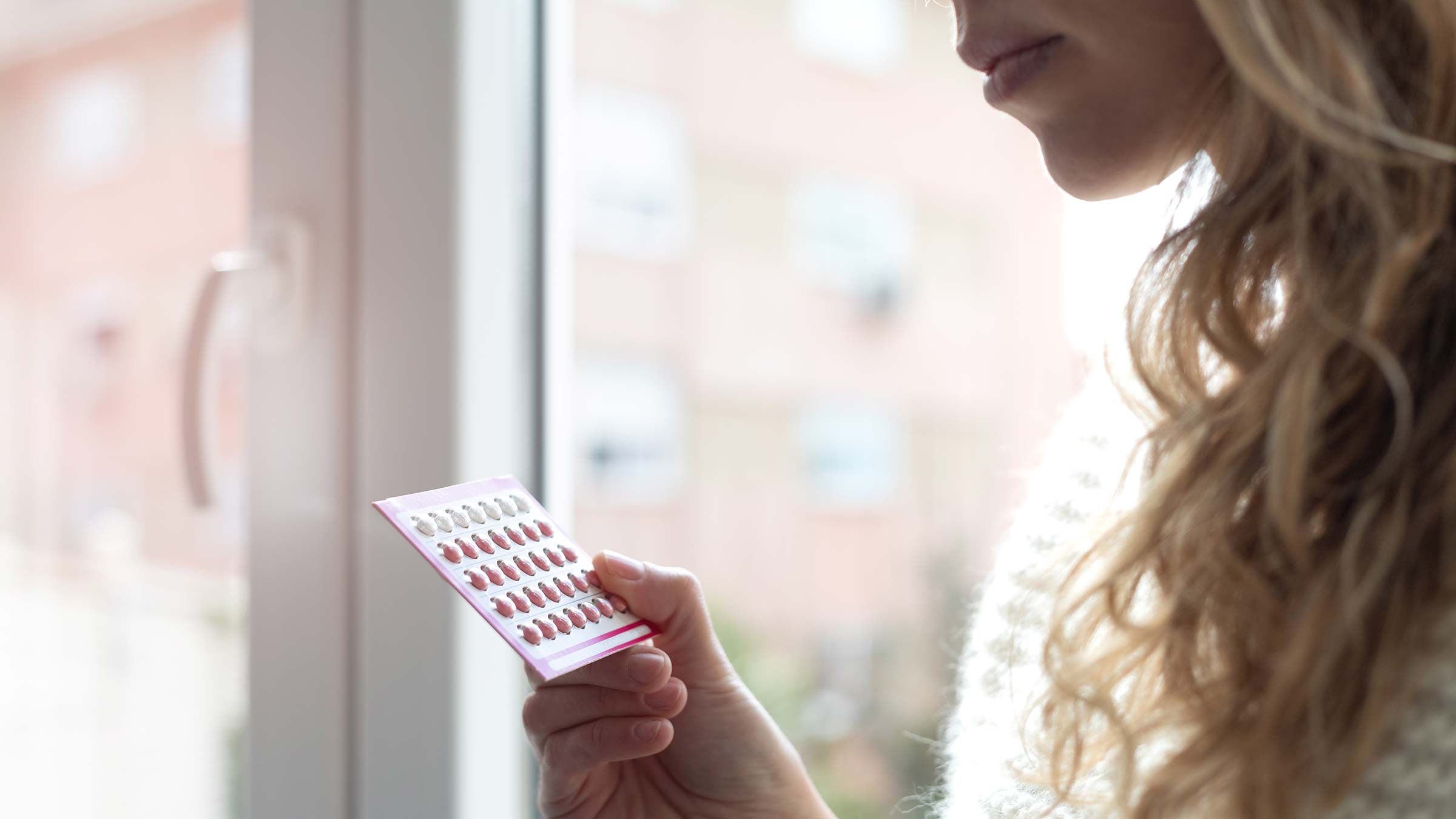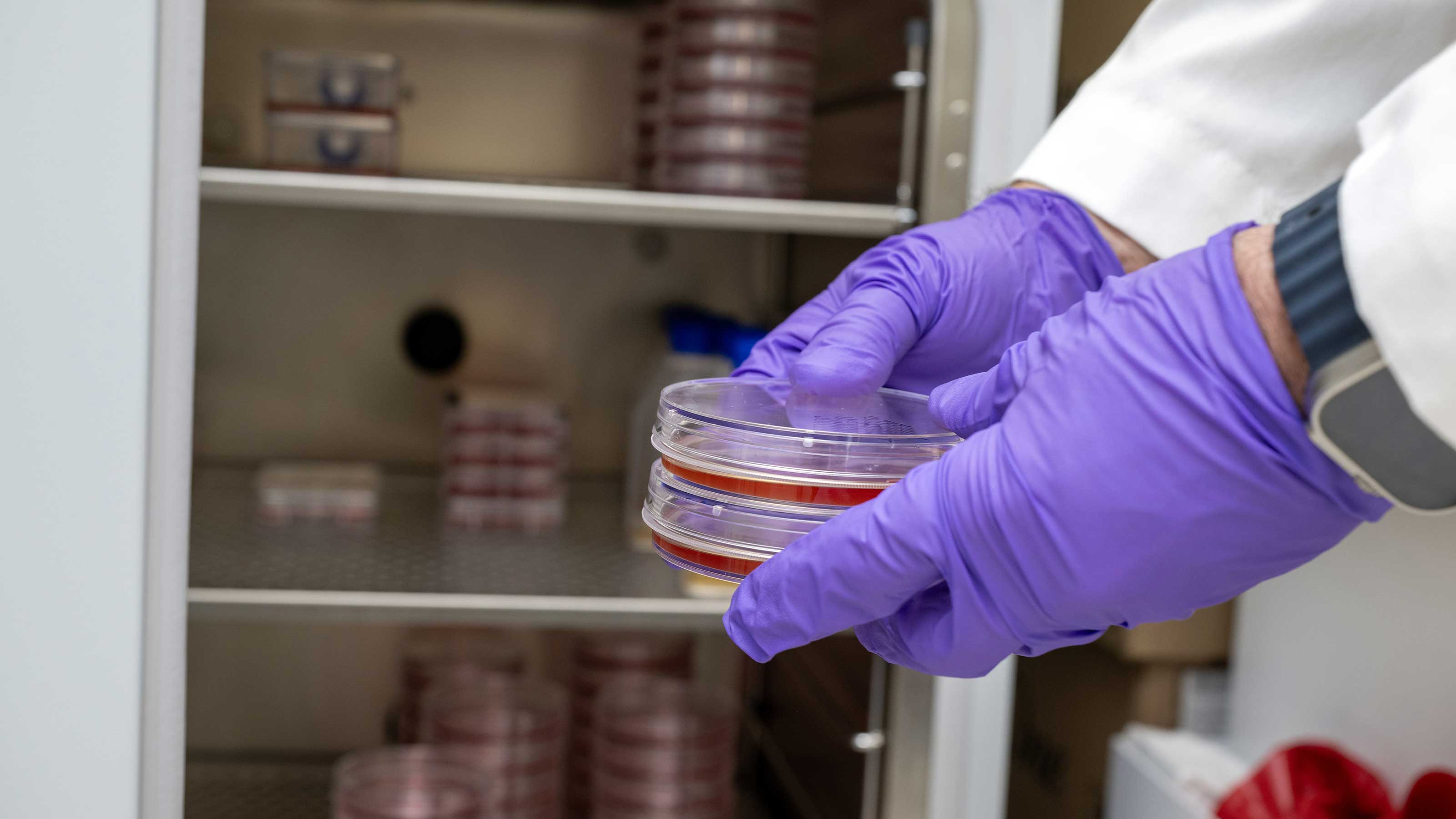
There are many reasons someone might want to skip a period. A wedding or vacation might be on the horizon. Excessive bleeding or cramping might lead to pain, exhaustion or other serious health issues. It simply might be a tiresome hassle.
Whatever the reason, many people wouldn’t mind missing out on monthly menstruation. And birth control pills give users an opportunity to control when, or if, they have their periods.
Is it safe to use birth control to skip periods?
If you’re eligible to take birth control pills, it’s completely safe to use them to skip periods. And, in many cases, it’s beneficial to avoid a monthly period to reduce symptoms or prevent a medical condition, such as pain, changes in mood or anemia caused by heavy bleeding. Long-term use of birth control pills also has other benefits including reducing the risk of uterine and ovarian cancers.
However, if you’re of childbearing age and you're not taking any hormonal medications, going several months without a period is a medical problem and should be evaluated by a health care provider.
Are there specific birth control pills designed for skipping periods?
There are some brands designed for skipping periods over several months, with three months of active pills, followed by one week of inactive pills, for example. That inactive week is when people would have a period.
But you can skip periods with any type of pills, including monthly packs. You just take all the active pills in a pack, whether it’s 21 or 24, skip over the inactive pills and go straight to the next pill pack. So, you’re taking active pills continuously.
It's important that you discuss this with your health care provider so they can write your prescription in a way that allows you to get enough active pills to take them continuously.
How does birth control work to control periods?
Hormonal control of a periods is a complicated process that involves hormones from the brain talking to the ovaries, which then talk to the uterus.
To simplify it, birth control pills give you a steady level of those same hormones every day, compared with the body’s normal ups and downs that regulate the menstrual cycle — when you ovulate and when you have a period.
When you're on the pills, you receive a steady level of hormones, which prevents ovulation from happening and prevents your uterus from receiving the signal that it's time to start bleeding.
For how long can someone skip periods?
From a safety perspective, people can skip periods indefinitely when using birth control continuously. The main reason people decide to have a period again is because they’re experiencing irregular bleeding, or spotting. For example, sometimes someone who has been taking a pill for several months straight without getting a period will start having irregular bleeding. In that case, taking a break from the pill for four days will result in a normal period, then continuous pills can be resumed. Sometimes there just needs to be that little reset.
Is irregular bleeding while skipping periods ever a cause for concern?
Occasionally, irregular bleeding can indicate other conditions, so it's a good idea to visit your doctor for an exam if it happens often or if taking a break from the pills doesn’t resolve the issue.
Is there a benefit to menstruating every month?
There isn't much medical necessity to having a menstrual cycle. This has been shown through the study of data from people who take pills continuously and from those who use other forms of birth control, like intrauterine devices (IUDs), which often lead to years without a period.
Will it take longer to get pregnant if I’ve taken birth control pills continuously?
As soon as you stop taking birth control pills, hormone levels start to decrease and you go back to your normal fertility. This doesn't mean you'll get pregnant the month after you stop taking pills. In general, it takes people a few months of trying. But taking the pill continuously won’t lengthen the timeline.
If I'm skipping periods with birth control pills, how will I know if I unintentionally become pregnant?
The chances of becoming pregnant while taking birth control pills regularly every day are quite low. But common signs of early pregnancy are nausea, fatigue and breast tenderness. If these occur or if you’re concerned, you can take a pregnancy test.
If I’ve taken birth control pills continuously, will periods be heavier when I stop?
Typically, periods are not heavier when people stop taking pills continuously. The pills decrease the uterine lining to a thin state, so there's not much lining to shed during a period.
What other birth control methods can be used to skip periods?
- The vaginal ring can be used continuously, like birth control pills, to skip periods. Use the ring for four weeks, then remove it and immediately replace the ring with a new one, instead of leaving it out for a week.
- About half of people who use IUDs have no bleeding or only bleed on an occasional basis.
- A contraceptive implant in the arm will lead to no bleeding for about 20% of people, but most people will still have unpredictable bleeding.
- Birth control injection (Depo Provera) often leads to no periods after about a year of use.
There’s not as much evidence that the birth control patch can be used effectively to skip periods, so we don’t recommend that it be used continuously.

Take charge of your health
Learn about obstetrics and gynecology services from central Ohio's most experienced team.
Get started




